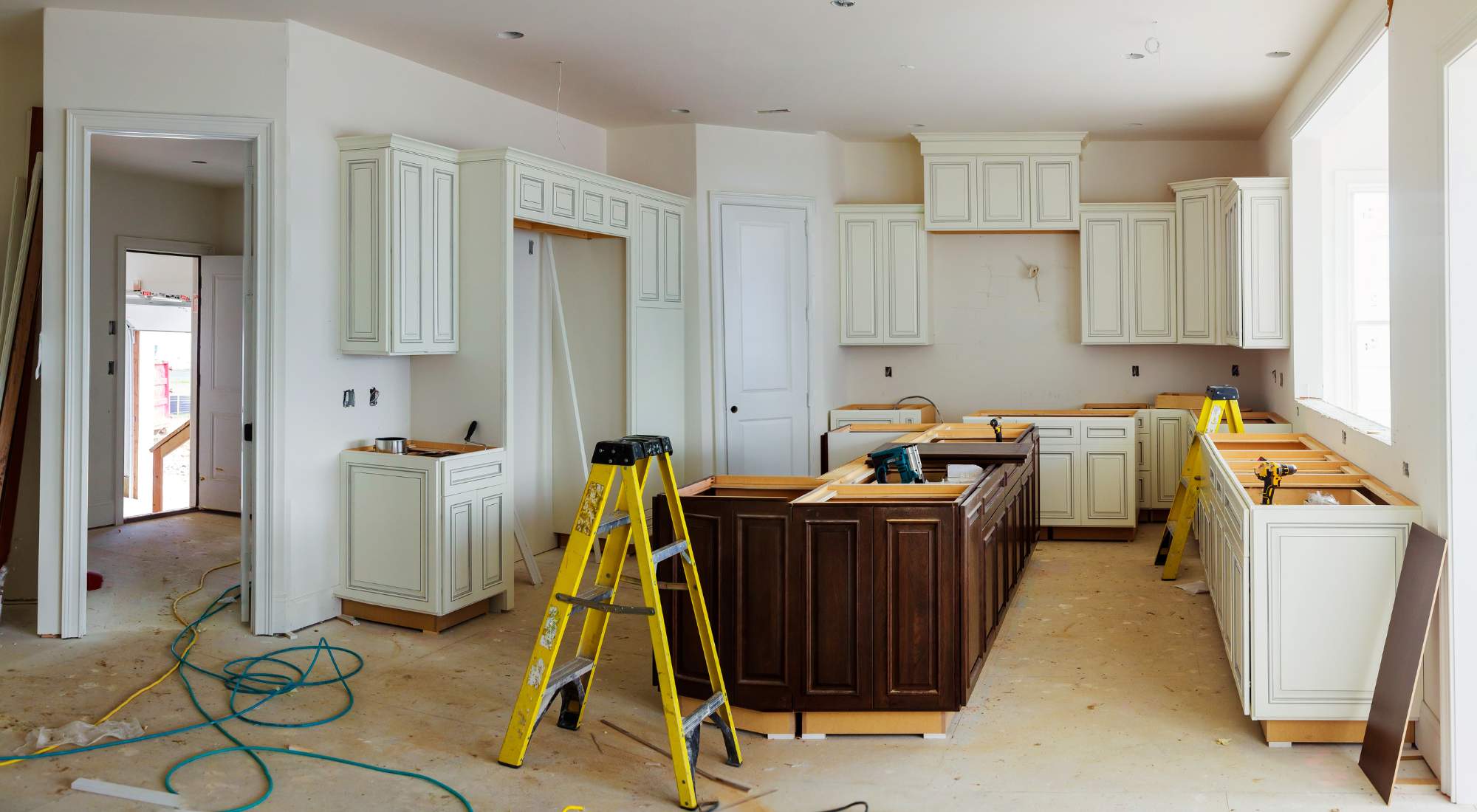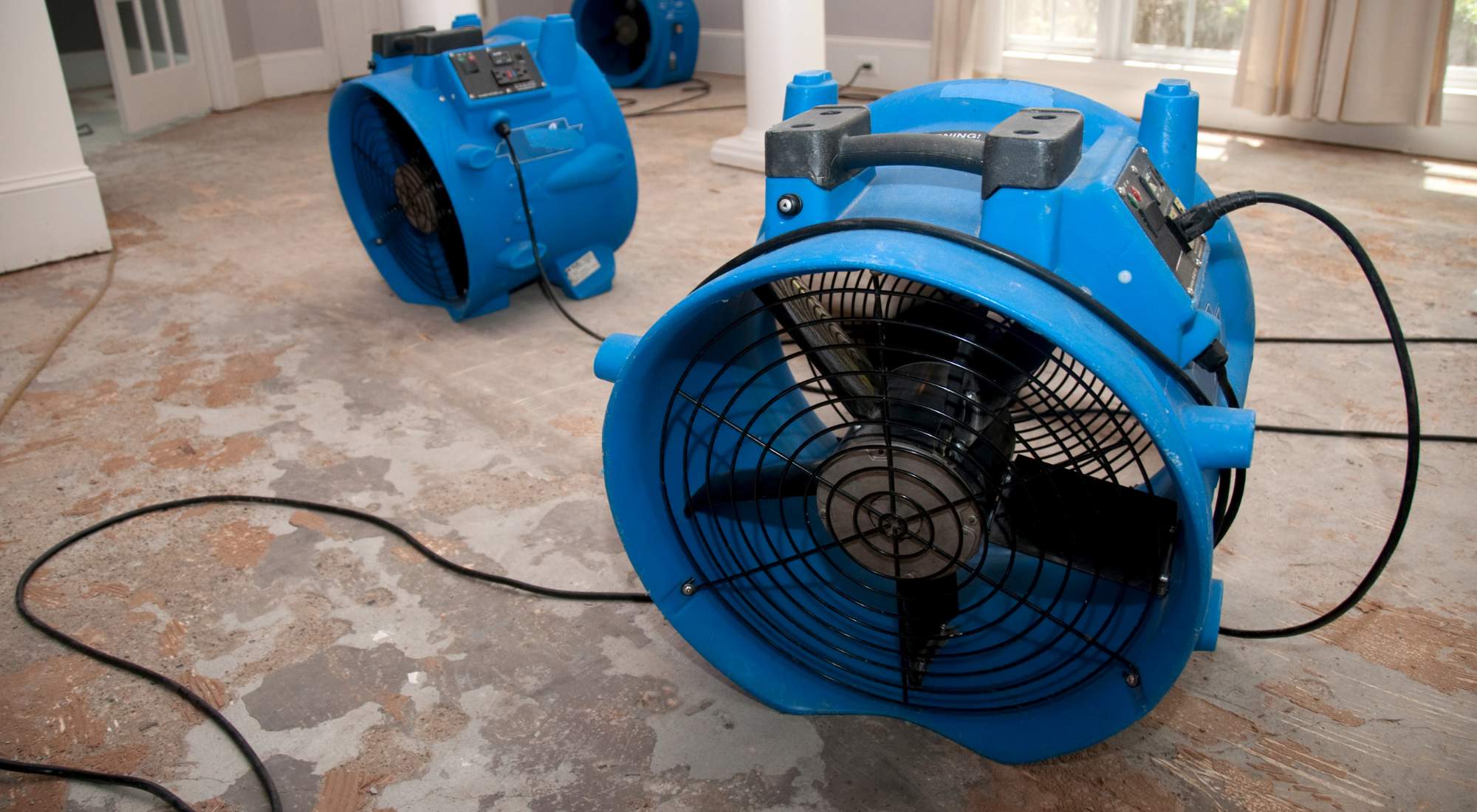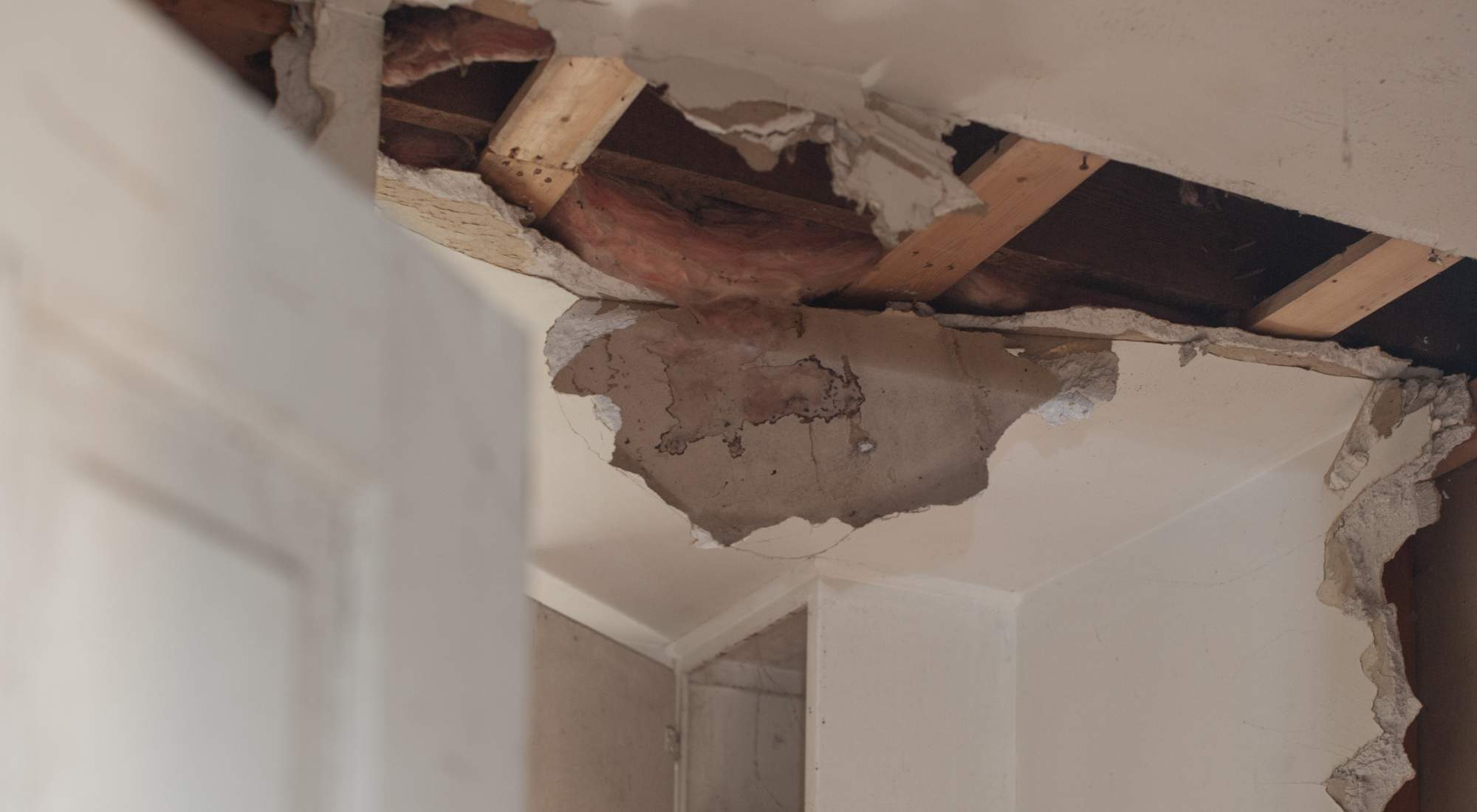It’s time. That outdated bathroom — or 80s-style family room — has got to go.
While you’re excited about updating your home, the thought of hiring a contractor for a home renovation or remodel feels more than a little unnerving.
How do you find someone who knows what they’re doing — and how do you know you can count on them to give you a fair price?
The renovation, remodeling, or restoration of your home is a huge investment that shouldn’t be taken lightly.
Here, we offer our professional perspective on hiring a general contractor for home renovation, including questions to ask to ensure you’ll get the results you deserve.

Table of Contents
- What Is the Difference Between Renovation and Remodel?
- 5 Tips for Hiring a Contractor for Home Renovation, Remodel, Remediation, or Restoration
- Questions To Ask Before Hiring a General Contractor for Home Renovations
- Pure Environmental: Trusted Repair and Restoration Contractors for Renovations After a Home Disaster
What Is the Difference Between Renovation and Remodel?
Many people use the terms interchangeably. However, because there are many different kinds of contractors to consider, an important step in hiring a contractor is clearly identifying what you want to do in your home.
In general:
- A remodel transforms an area’s purpose.
- A renovation provides repairs and updates to a room or area while maintaining the space’s original purpose.
Each of these options will vary when it comes to:
- Cost: A remodel costs more than a renovation since it may require construction, electrical, or plumbing work.
- Time: Remodeling tends to take longer than a renovation due to the amount of work required. For example, a room-painting renovation will take less time than a remodel that includes wall removal.
- Work: Changing the appearance of a space is the focus of renovations, while remodels focus on transforming the space.
- Customization: Remodeling offers the most design flexibility and options for customization. Renovations allow for some customization, but they are mainly focused on aesthetics.
Additional Terminology: Restoration and Remediation
Remediation involves taking care of an emergency, much like triage, by stopping the damage from getting worse. The process can be complex and requires the proper equipment and training to make properties safe and secure for use again.
Remediation involves thoroughly removing contaminants or pollutants to ensure ongoing safety. For example, if you discovered mold growing in your home, remediation would be undertaken by qualified mold specialists to remedy the problem for the preservation of your home and the safety of your family.
Restoration can refer to two very different scenarios:
- Restoring a room or space to its former glory, with replicas or original materials
- Restoring a space after a disaster like water or fire damage
The team at PURE Environmental provides both remediation and restoration and will negotiate with your insurance company if the renovation project is due to a home disaster.
Request your free estimate from Pure Environmental today.
5 Tips for Hiring a Contractor for Home Renovation, Remodel, Remediation, or Restoration
#1: Don’t Underestimate the Importance of Licensing
Licensing ensures you are protected from financial liability should someone become injured during your remodeling project.
Licensing requirements will vary based on the issue being addressed and by state.
If you’re wondering how to check a contractor’s license, start with your state’s licensing page online. There, you’re able to look up specific contractors to see which specific licenses and certifications they hold. This page will also reveal any claims that may have been filed against them.
It’s also important to find out the requirements of your county government. Make sure your contractor and their subcontractors hold the certifications related to the job they’ll be doing. If they don’t, they may not have the proper training for the job.
Specialty Trade Licensing
The general contractor often does not carry specific specialty licenses for things like plumbing and electricity.
For this reason, you’ll want to inquire about their subcontractors to ensure they are correctly licensed as well. A great contractor will share information ahead of time regarding subcontractors they plan to work with to complete your project.
Post-Disaster Remediation and Restoration Licensing
When it comes to remediation and restoration, not all contractors have the proper licensing for post-disaster remediation for things like water, smoke, or mold.
You want someone who will adhere to the rules their licensing requires.
PURE Environmental is licensed by the IICRC (Institute of Inspection Cleaning and Restoration Certification), a non-profit organization for inspection, cleaning, and restoration industries — specifically mold abatement and water loss. In association with the LLCRC certain industry practices and procedures must be followed to maintain licensing, so you can rest assured you’re in qualified hands.

#2: Talk To and Get Estimates From Multiple Contractors Before Choosing
When hiring a contractor for home renovation, talk to multiple contractors and get written estimates from at least three.
Be sure you’re comparing apples to apples with your estimates by looking at the factors that may vary by contractor, such as:
- Building materials
- Work methods
- Timelines
- And more
When considering equipment, it’s important to realize there are multiple ways to arrive at the same solution. For example, one dehumidifier and one fan may not dry a room as fast as one dehumidifier and three fans. Both may be reasonable solutions to the same problem, although with different timelines.
Be cautious of any estimate that is considerably higher or lower than the others.
#3: Get a Full Picture of Their Qualifications
Ask to see pictures of the contractor’s previous projects, and be sure to also:
- Inquire about their amount of experience and how many jobs like yours they’ve done. Do they specialize in your type of home renovation?
- Read their online reviews and ask around to determine their level of workmanship and customer service.
- Ask for references and referrals from their past clients.
- Check them out with the Better Business Bureau to find out their professional reputation and the number of years they’ve been in business.
#4: Make Sure To Get Everything in Writing
In your search for a general contractor for home renovations, never take a verbal agreement. Always get everything in writing before work begins, including a clear, well-written, comprehensive contract.
If the project involves substantial costs, don’t hesitate to ask a lawyer to review the proposed contract ahead of time for your protection before you add your signature.
A home renovation contract should include:
- A detailed description of the agreed-upon work, including the price of each item.
- A payment schedule that outlines specifics, such as one-third down, and one-third when work is partially completed, with the balance due upon completion of repairs.
- The estimated start and completion dates.
- Any applicable guarantees. These should be clearly stated and written into the contract, outlining who is responsible for the guarantee and how it is valid.
- Signatures from all parties. If the contract contains blank sections, withhold your signature until they are completed.
Any changes or updates to the contract should be acknowledged in writing by everyone involved.
#5: Don’t Agree to Full Upfront Payment
Never pay for the entire project prior to completion.
All checks should be made payable to a company, rather than an individual, and never pay in cash.
For larger projects, it’s fully acceptable to pay one-third of the estimated total as an initial payment. This allows you to retain your cashed check as a receipt.
Questions To Ask Before Hiring a General Contractor for Home Renovations
Procedural Questions
When hiring a contractor for home renovation, ask a variety of general questions about the overall process to help you learn how the contractor works. Include queries such as:
- Will the same people be at my house each day? This lets you know if there will be a team dedicated to your project or if you’ll have a constant flow of new faces. If you feel more comfortable knowing who will be arriving each day, hire a contractor with a dedicated team of employees.
- Do your employees go through a background screening? This is an important step to ensure the safety of your home and belongings, but not all companies do this well.
- What’s the best way to communicate with you and how frequently? For more comprehensive home renovations, weekly meetings with the project manager can be expected. Outside those times, ask about the best method for communicating with your contractor and their team.
- Do you take care of all required permits? This isn’t something the homeowner should be required to do, and a responsible home renovation contractor will handle the process. Since the contractor is the one ultimately responsible for ensuring the job is completed properly, their name should be on the permit.
- Is there a warranty on the job? The contractor should offer some form of warranty on their work. Find out what it will cover and for how long. Some of the installations and materials used in the project should also come with their own warranties. Be sure to get all warranty information in writing before the job begins.
Timeline Questions
Asking timeline questions helps you navigate how long the project will take from start to finish.
Include questions like:
- How long should the job take to complete? If you have a deadline in mind for this job, be sure this contractor can meet it, particularly if you’re entering a busy time of year such as the summer or around the holidays.
- Are there any potential obstacles that might delay completion? Unexpected delays often happen, even with the best of contractors, due to weather or illness. Plan realistically and be prepared to adjust your schedule accordingly.
- Are there mechanisms in place to address issues if the timeline is slipping? We know that timelines can be an approximation due to unexpected delays, but it’s important to have a plan of action if the timeline begins to change.
Budget Questions
Staying within the guidelines of a budget is crucial for many people.
Budget questions may be some of the most important to ask and include:
- What happens if something runs over the estimated budget? It’s always wise to pad your estimate with an additional 10-25% for unexpected events.
- How are change orders handled? Allow yourself the flexibility to change your mind. For example, maybe once your bathroom remodel gets underway, you realize the fixtures you selected clash with the tile. What is your contractor’s process for handling that type of change?
Licensing and Insurance Questions
This area of questioning ensures your contractor is qualified to complete your project, while also ensuring that you’re protected, should something go awry.
Ask questions like:
- Are you licensed and certified? Visit your state’s online licensing page to confirm their licenses and certifications. Also, be sure to look into the licensing requirements of your county government. Check to ensure your contractor and subcontractors hold the certifications related to the jobs they’ll be performing.
- What special certifications do you hold? Ask about things like CGR (Certified Graduate Remodeler) through the National Association of Home Builders or LEED (Leadership in Energy and Environmental Design) through the U.S. Green Building Council. Do they belong to any industry organizations that might demonstrate their investment in their profession?
- Do you carry liability and workers’ compensation insurance? If the answer is no, you’re liable if someone is injured on-site. Always ask to see a copy of their insurance documents.
Payment Questions
Payment questions ensure everyone is on the same page when it comes to compensation for the work performed.
Questions should include:
- What are your terms of payment? Ideally, ask for a line-item contract that spells out each aspect of the job so you have all the terms in writing.
- What payment options are available? Go over payment options and your budget with the general contractor before work begins. Under no circumstances should you pay cash. Paying by credit card or check (or arranging financing for larger projects) allows you to have a record of payments. A contractor requiring cash payments is likely a scam.
- Is a down payment required? Typically, the answer is yes. Your state may have a limit on the amount of money a contractor can request for a down payment, so research the requirements in your state.

Pure Environmental: Trusted Repair and Restoration Contractors for Renovations After a Home Disaster
Helping people put their lives back together following a disaster is a challenging process for everyone involved.
If you’ve experienced an issue such as fire or water damage, you know that mitigating the problem is only the first step of the solution. Once you’ve handled the initial problem, you’re left to navigate your repair and remodeling needs.
The team at Pure Environmental can help ease your mind by:
- Surveying the damage
- Providing you with a detailed estimate for repairs or remodeling services; and
- Working with your insurance company to quickly provide you with a quality restoration
We pride ourselves on being able to offer clients full-service property repair and restoration contractor services.
Our skilled team can transform an unforeseen disaster into a beautifully updated kitchen, bathroom, or entire home. When it comes to hiring a contractor for home renovation you can trust the team at Pure Environmental for all your property restoration needs.
Request your free estimate today.
Recent posts
- Maximize Comfort & Savings: Make Your Attic More Energy Efficient Today
- How To Prevent Water in Your Crawl Space: Proven Strategies To Prevent Water Damage
- Fresh and Clean: How To Disinfect the Air in Your Home Naturally
- Pros and Cons of Heat Treatment for Bed Bugs: Things To Consider When Reviewing Your Options for Remediation
- How To Get Rid of Pet Odor in Your House
Recent Posts
- Maximize Comfort & Savings: Make Your Attic More Energy Efficient Today
- How To Prevent Water in Your Crawl Space: Proven Strategies To Prevent Water Damage
- Fresh and Clean: How To Disinfect the Air in Your Home Naturally
- Pros and Cons of Heat Treatment for Bed Bugs: Things To Consider When Reviewing Your Options for Remediation
- How To Get Rid of Pet Odor in Your House
